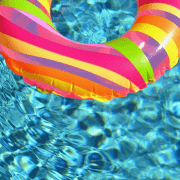Solar lights are a great way to go eco-friendly, utilizing renewable energy sources as a source of electricity to lighten up a place.
They can be used in the backyard to give a touch of ambiance to the place at night. The more giant solar-powered lights can be used inside the garage or the front porch, or anywhere else that one can think of.
Why Use Solar Powered Lights?

The solar lights are more efficient. They waste the least amount of energy and produce enough light after utilizing solar energy.
Solar lights save money since electricity is not being bought from the government or some other provider. This reduces the monthly electricity bill, as well.
The source of energy is solar. There is no fuel consumption of any type, which also saves money, that would have been spent on fuel if a generator powered the lights.
Sunlight being renewable, there is an endless supply of electricity, and thus light, throughout the day, if there is sun out in the sky.
Some solar lights are hybrid, as they can use batteries and solar power for their energy source. This means, even if sometimes there is no sun available, the lights will not go out.
The other benefit is that these lights are automatic. They do not need to be turned on manually each evening or night. The light sensors on the solar lights detect when and if the surrounding is dark.
If it is dark enough for the lights to be on, it automatically switches on. This saves some trouble, especially for busy people, or tends to forget things they had to do.

The solar lights can also detect what time of the year it is, and the lights adjust when to turn on depending on when the sun sets during winters and when during summers.
However, just like all mechanical things, solar lights cannot function without giving some trouble forever. They stop working too at times, and that can be because of several reasons.
Possible Reasons for The Solar Lights Not Working
There are many common reasons why solar lights might not work. Here is a list of the few:
The Power Switch

Although it may seem like not an issue that should have been mentioned, it is a common thing that people do. At times, people forget to turn on their solar light’s switch and keep wondering why their brand-new solar light is not working. Therefore, if someone has bought a brand-new solar light, then make sure that the on/off switch is on.
Sensors Malfunction
Often what happens is that the sensors stop functioning correctly. The light sensors on the solar lights sense the light and the amount of light in the surroundings to determine if it is dark enough or not. If it is, then the light turns on.
However, the sensor might not detect if it is dark enough because of being hit by an external light source, like a bulb on the front porch. This can cause solar lights not to turn on.
To confirm whether the sensor is not working at all or is just not able to detect the darkness, cover it with some sheet or panel.
This will simulate night like conditions for the sensor. If the lights turn on, then one can know that the sensors need some tweaking.
Just changing the position of the solar panel can work in most cases. If it still does not work, proceed to the other possible reasons mentioned below before taking it to a repairer.
Check the Batteries Inside

For those who do not know, there are ordinary batteries inside the solar lights as well. The batteries inside are rechargeable and get charged throughout the day, and then work at night to provide the electricity. The ones usually used inside are the ‘Nickel–metal Hybrid’ battery or ‘Nickel-cadmium’ battery.
However, just like any other thing, they lose their efficiency and capacity over time. They stop charging after some time, causing them to run out eventually and therefore cause the solar lights to stop working.
To notice this reduction of the battery’s charging capacity, one should pay attention to how long their solar lights are staying up every day.
If they tend to turn off earlier than usual or stay on for less time than how much they did maybe a month or just a week ago, then the batteries might be needing a replacement.
On average, they last somewhere for around one year to 2 years. However, that is not a compulsory thing. Some people have seen their batteries last more than four or even five years before showing any adverse symptoms.
Therefore, check the batteries, if they are charged or not, and if they are getting charged or not. If they are neither charged nor getting charged or running for a meager amount of time, getting a replacement is the only option.
Look Out for Shade

Maybe there was no shade where the solar panel was fixed when it was being fit there, throughout the daytime.
However, as the seasons changed, the sun set’s direction in the evening changed, there popped up a shadow on the solar panel, maybe from a tree or a building, or anything of the sort.
This can reduce the charge that the solar panels get during the daytime. If the shadow was there on the panel for most of the day, the lights might not work in the evening at all.
Therefore, check for all shadows falling on the panel. To avoid such situations, check for the shade falling on the panels, if any, whenever a new season begins.
Clean It Up

Check for any collection of dirt or leaves or anything else on the top of the panel. Sometimes, dust collects over it, which prevents the sunlight’s proper intake by the solar panels. Therefore, they stop working correctly.
Set It Up at Right Angle
Although it does not play a key role in how long the solar panels stay lit, the angle of the panel is still one that needs consideration. It does impact the overall runtime of the solar lights.
Keep the solar panels at an angle where they can get the maximum amount of direct sunlight. For example, during winters, placing them at 45 degrees and panels’ face towards the sun will allow for maximum sunlight falling over the panels.
Direction

The solar lights will run the longest if, during the daytime, they will have received the light for the most extended amount of time. That is only possible if the panel faces ‘South.’
To explain why, in simple terms, the sun starts its journey from the east and ends it in the west, i.e., rising in the east and setting in the west.
Therefore, when faced south, the panel will keep receiving the sunlight from sunrise to sunset.
Check for Moisture Inside
These days most electronic gadgets have IP certification. This means they can handle water-related issues, from minor spills to being submerged as well.
This depends on how well the machine is manufactured and what the IP rating it is.
Therefore, moisture might get inside the panel. This can happen during a rainy day, or a foggy day, through some opening in the panel or even a crack.
Although some solar lights do come with a design that drains out the water from the machine, there still can be water damage in some cases.
If the lights stop working after a rainy day or a foggy day, water damage can be a possibility for the lights’ malfunctioning.
To fix it, remove the moisture from any visible places first and then from the places where the covers can be detached.
Disassemble and then store the lights under the sun for a few days. Then reassemble, try to charge it for two days and then switch it on.
Wildlife

If the wires or the panel has been damaged by a squirrel, a rat, or some other animal, two possibilities remain. In case of minor damage, duct tape can fix them or a change of the wires. In case of significant damage to the electricals, the company should be contacted.
Fixing the issues by self or getting it repaired by a third-party mechanic can void the warranty, so make sure to contact the company first if the solar lights are still in warranty.
Wires Not Plugged in
The human tendency to make mistakes is unavoidable. In solar lights, where the solar panel is not attached directly to the solar lights, it is usually connected via wires.
Therefore, it should not come as a surprise if one forgets to plug in the solar panel wire to the solar lights.
Through the wires, the batteries get charged from the electricity coming from the solar panel or the direct supply of electricity for the solar lights.
If None of These Is the Problem
In that case, contacting the company if the solar lights are not working and under warranty should be the first thing.
Otherwise, getting in touch with someone who repairs such things should be contacted. Till then, use the main supply of electricity from the house.














Comments